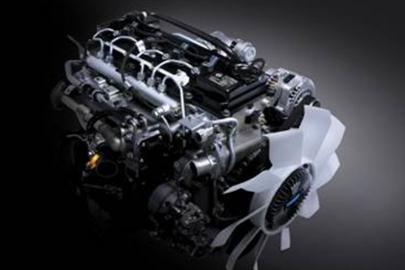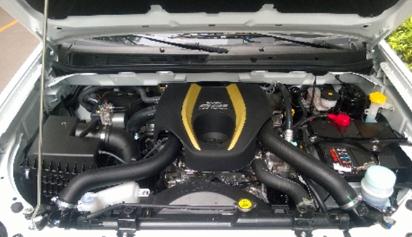According to the “Action Plan for Prevention and Control of Atmospheric Pollution†promulgated by the State Council, accelerating the country’s special actions to upgrade product oil quality to meet increasingly stringent emission standards is an important measure to improve the environment, control haze and other pollution, promote green development, and increase people’s well-being. It is also conducive to expanding investment, promoting technological transformation and consumer demand. The meeting of the State Council determined that the production and supply of clean oil products should be accelerated and that the quality upgrade of refined products be completed ahead of schedule. First, the region will supply the gasoline and diesel fuel for China's five standard vehicles from January 2016 onwards, from the planned key cities in the Beijing-Tianjin-Hebei region, the Yangtze River Delta, and the Pearl River Delta to the entire territory of 11 provinces and cities in the entire eastern region. The second is to advance the time for the use of gasoline and diesel fuel for the five standard vehicles across the country from the original January 2018 to January 2017. The third is to increase the supply of high-standard regular diesel. From July 2017 and January 2018 respectively, the company will fully supply the country's fourth and country five standard diesel.
As of January 1, 2017, all light-duty gasoline vehicles and heavy-duty diesel vehicles (passengers, buses, public transport, sanitation, and postal use) manufactured, imported, sold, and registered must meet the requirements of the National V Standard. As of July 1, 2017, all heavy-duty diesel vehicles manufactured, imported, sold, and registered must meet the requirements of the National V Standard. As of January 1, 2018, all light diesel vehicles manufactured, imported, sold, and registered must meet the requirements of the National V Standard.
The implementation of the National V emissions standards for diesel pickup trucks was implemented one year in advance, and the pickup trucks with insufficient technology reserves were caught off guard. It's not a long story to say in a year's time; short-term is not too short. This is a severe test for some self-branded pickup trucks without the engine's self-control ability. In theory, it may be the process of survival of the fittest. However, in the actual process, the most worrying and anxious concern is that although the late latecomers who were considered to be dragging their feet were late, they rushed to an early episode, such as the JMC Group's Bingqi New T5. National V pickup, Foday Lion F22 V pickup (It is reported that within the cloud 1.9T country V). In addition, the Jianghuai Pika Shuai Ling T6 V gasoline version is equipped with an independent research and development of HFC4GA3-3DVVT (variable valve timing system) technology gasoline engine, the next optional JAC Navitas Maisford 2.8L V diesel The engine is also in the bag. It is also one of the best options to install the Maerso 3.2L diesel engine in the future in the full-size pickup or pickup truck market.

At the same time, the major traditional pickup truck companies, such as Great Wall Fengjun, are the first domestic V pickups that match the electronically controlled common rail technology INTEC diesel engine. The Ford PUMA diesel engine on the Jiangling domain tiger pickup truck and the Cummins engine matching the Beiqi Foton Topo pick-up truck. In addition, ZTE pickup has been equipped with a 2.2L 4GZ1 gasoline engine emission standard for all three new vehicles. Another example is joint venture brands such as Jiangxi Isuzu pickup truck, Zhengzhou Nissan department pickup truck, FAW-GM Chengkun pickup truck and independent brands such as Dongfeng Motor Corporation's Xintianyou pickup truck and Huanghai N series pickup truck. They are also fully prepared for "preparing for a rainy day" in the national V emission technology reserve. . However, in terms of cost control and market acceptance and capacity, it is the next competitive means and target, and it is a competition of comprehensive strength. Therefore, the author sternly believes that in the next decade, competition in the Chinese pickup truck market will be a real struggle in the engine field. Whoever has advanced engine technology will be the industry’s “biggestâ€.

China's "National V Standard" is equivalent to the European Union's "European Five Standards". The EU has implemented it since 2009, and its restrictions on emissions of nitrogen oxides, hydrocarbons, carbon monoxide, and suspended particulates are more stringent. . At present, the EU has universally implemented Euro VI emission standards. China's automobile emission standards have been raised from country I to country IV. Each time the standard is increased, the pollution of bicycles will be reduced by 30% to 50%. Compared with the National IV emission standards, the national V standard light vehicle nitrogen oxides (NOx) to be reduced to 25%, heavy vehicles must be reduced by 43%. The country V is more rigorous, and it seems that it is even higher than the Euro V emission standard. The pollutants emitted are less environmentally friendly.
National V implemented nationwide in January next year mainly has the following changes: First, the sulfur content index limit is reduced from 50 ppm in the fourth stage to 10 ppm, which is reduced by 80%; second, the limit value of the manganese content index is determined by The four-phase 8 mg/L reduction is 2 mg/L, and it is forbidden to add manganese-containing additives; the third is to adjust the fifth-phase gasoline gasoline number from No. 90, No. 93 and No. 97 to No. 89, No. 92 and No. 95 respectively. At the same time, in the standard appendix increase the number 98 vehicle gasoline index requirements.
In addition, in order to prevent the winter cold in winter due to low steam pressure affecting the cold start performance of automotive engines, resulting in insufficient combustion and increased emissions, the lower limit of winter vapor pressure from the fourth stage of the 42kpa to 45kpa, in order to further reduce the volatile organic compounds in gasoline Emissions, reduce air pollution. At the same time, the upper limit of steam pressure in summer is reduced from 68kpa in the fourth phase to 65kpa. This is to further reduce the photochemical pollution caused by the evaporation of gasoline and reduce the deposits in the intake system of automobile engines. The olefin content is reduced from 28% in the fourth phase to twenty four%. Second, in order to further ensure that the fuel economy of the vehicle is relatively stable, the density index has been specified for the first time. Its value is 720-775 kg/m3 at 20°C.
There are challenges in the emission control system of diesel engine exhaust gas particle cleaning and regeneration technology, engine combustion chamber optimization, and injector matching optimization in order to achieve national V emissions. In particular, the biggest challenges in terms of cost control, engine costs will increase by 5000. Around RMB, the increase in costs will directly affect the profitability of pickup trucks. In the face of the trade-off between profitability and selling price, it is necessary to make a choice – that is, the competition of comprehensive strength.

At the same time, on the New Year's Day next year, we must strictly implement the National V emission standards. This is not only to increase vehicle emission standards, but also to increase the quality of domestic diesel oil. At present, domestic diesel can not meet the needs of advanced diesel engines for oil supply and combustion systems. In first-line cities, they are basically purely imported finished fuel oil. Once national-wide V emission standards are implemented nationwide, The diesel engine that raises the emission standards will be a severe challenge, and it is very likely that the national IV discharge post-treatment system technology will be falsified. This will make the national V emission standard a “cooked meal†for the “chicken chicken†and make it available throughout the country. Taxpayers suffer huge economic losses and are not conducive to physical health.
The
Three Mast Lift three groups of mast column support operation platforms rise and fall synchronously, and the support and retraction structure is the same as that of the single mast column platform, with super large load capacity and excellent working stability. The integral lifting guardrail device has good strength, greatly reduces the height of the whole machine during transportation, and is very convenient for loading and unloading. Assembly or disassembly can be completed through one lifting. The elevator has strong bearing capacity and is suitable for two people (who can carry certain weight tools and materials) to work at the same time; Various non-standard products can also be customized according to different environments to meet different needs.
It is mainly used in shipyards and other places with high requirements for height. Such machines are safe and easy to move, but the cost is very high. It is widely used for high-altitude operation and maintenance in factories, automatic warehouses, parking lots, municipal administration, stations, airports, cinemas, exhibition halls, docks, buildings, decoration, logistics, electric power, transportation, petroleum, chemical industry, hotels, gymnasiums, industrial and mining enterprises, etc. It is the best choice for maintenance equipment, paint decoration, replacement of lamps, electrical appliances, cleaning and maintenance. It can be designed and manufactured according to personal needs and use requirements. This kind of lift is widely used by fire brigades.
Hydraulic Three Mast Lift,Three Mast Lift,Vertical Three Mast Lift,Aluminum Three Mast Lift
zhongcan machinery Co.,Ltd , https://www.zclift.com